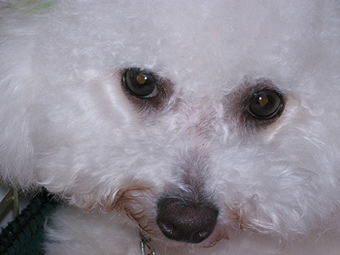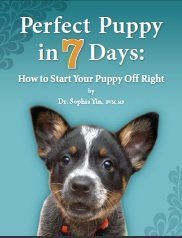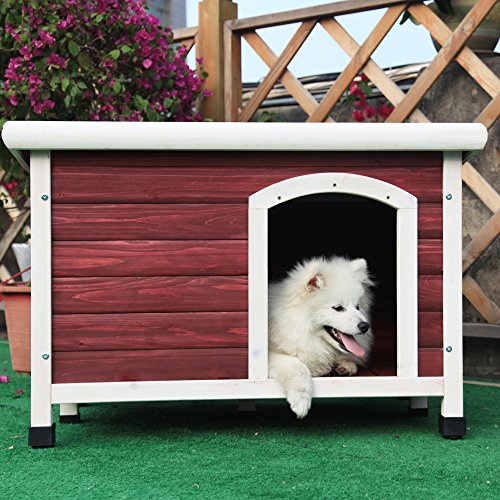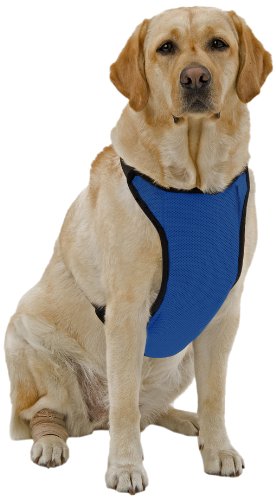Dogs And Eating Grass
Have you ever wondered why your dog is eating the grass in the yard? They sniff and pluck blades usually from a familiar spot. Sometimes they even chew on fresh branches or pull the bark off of trees, which can often be annoying when you want to keep your yard healthy and green. But stopping your dog from eating the grass, plants, or trees isn’t the solution. These greens are necessary for your dog’s body.
Aside from the common thoughts that grass helps settle a dog’s belly if they’re upset, plants play a much more important role in your dog’s well-being. Although grass does play a part in your dog’s digestive system, helping them to digest and process their food easily, green plants have more to offer your dog’s entire body.
The necessary nutrients for your dog
One of the primary reasons that your dog eats grass is because they’re seeking vital enzymes for their body. Plants produce many of these enzymes naturally, so your dog needs them to maintain a healthy body. Instinctively, they know this, so they eat plants of all sorts to accumulate them. Unfortunately, this may result in a dog nibbling a poisonous or dangerous plant (poinsettia, cactus, or even rose bushes) to find the necessary nutrients for their body. Since this can be a very serious problem, it is up to you to prevent this by giving your dog a safe source of these enzymes.
A dog’s body requires twenty-two different enzymes to complete healthy body functions. Twelve of these occur naturally within their body and can be sustained with the proper diet (quality dog food designed for their breed and size). The other ten are found in nature- primarily in plants. Grass contains several of these enzymes, but not always enough, which is why dogs will often pick and choose from areas in the yard to snack on greenery (they may even sneak into the garden if they get a chance).
Because it is up to you to ensure your dog is provided a healthy lifestyle, you must make these enzymes readily available to them. There are food additives you can purchase at pet stores and even health food stores, but one of the best sources for your dog to get these enzymes is in algae. An alga is not a mold or growth in water, but a plant. It is actually the most life giving plant, producing most of the world’s oxygen that we consume every day. But you don’t have to let your dog lick the bottom of the pond to get these nutrients. Tablets composed of dehydrated algae are available, and are good for both you and your dog.
Other excellent sources of enzymes and nutrients for your dog are the plants kale and seaweed. These water plants can be found in most grocery stores (especially as we become more aware of our own health) and can be mixed in with their food or eaten on their own.
Besides just providing the essential nutrients for your dog’s body, these plants also help to rid their body of unnecessary toxins. They are a great addition to a healing dog’s diet, especially right after certain procedures or illnesses. On top of that, these plants also provide good sources of protein for energy and strength (even though they may already be more than enough for us to handle).
Staying hydrated
Another reason for snacking on greenery is that a dog may require more water. Dogs, especially seniors and puppies, require plenty of water to cool and function properly. Always make sure that your dog has ready access to water and that it’s kept fresh constantly. Some dogs may need incentive to drink (you can lead a dog (horse) to water, but you can’t make them drink). Moving water means fresh water, and many dogs will enjoy drinking from a fountain, faucet, or even from a pouring container before they will drink from a bowl. If you’re concerned that your dog isn’t staying hydrated, you may consider investing in a cycling water fountain for them. It keeps the water circulating so that it stays fresh for your pup.
So don’t fret if you see your dog pulling up a patch of grass. They’re just trying to get the nutrients their body needs. All you need to do is help them achieve a healthy body. Regardless of what source your dog gets their enzymes, nutrients, and water from, it’s up to you to provide them with a complete diet to ensure their health and well-being. When you provide them with what they need, they won’t be as inclined to snack on the grass or trees, and you can enjoy a healthy yard and a healthy, happy dog.

 Top 10 Dogs for Apartment Living - Ten dog breeds that do well in apartments
The Top 10 Dogs for Apartment Living
“What dog will d
Top 10 Dogs for Apartment Living - Ten dog breeds that do well in apartments
The Top 10 Dogs for Apartment Living
“What dog will d
 Tips for Choosing a Boarding Kennel
Credit: Morguefile.com
Tips for Choosing a Boarding Kennel
Credit: Morguefile.com
 What Is My Dog Really Thinking?
Scientific Proof The proof i
What Is My Dog Really Thinking?
Scientific Proof The proof i
 Cute Dog Houses
Our pets are part of the fam
Cute Dog Houses
Our pets are part of the fam
 Cooling Vests For Dogs
Dogs feel the heat just like
Cooling Vests For Dogs
Dogs feel the heat just like